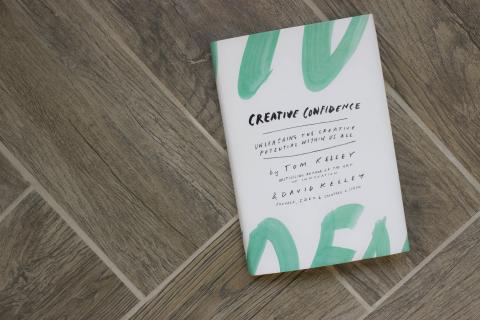How to Prepare for Finals
Apr 21,2016
Finals are approaching! What can you do to make sure you are prepared?
- Get organized. Sort through all of your materials for each class and separate them. Using a color code system for folders, binders, and notebooks can be really helpful! Since the semesters can get pretty hectic, papers are easily mixed up with one another causing a whole lot of frustration. Having your materials organized before hand will prevent added stress to an already stressful time of year!
.jpg)
- Prioritize. Although you should be reviewing your notes and studying each day prior to finals to prevent last minute cramming, it is important that you direct your time and attention wisely. For example, if you have one exam on Monday and another on Tuesday, you should put the majority if your focus into the Monday exam to then direct it towards the following one. If you spend too much time studying for exams you are not taking right away, you risk being under prepared for those that are up first. Prioritizing your studies will help you get the most of what is necessary out of your time. Although you may be in a panic feeling as if you should study for everything all at once, studying in order allows you to have a better overall understanding of each group of material. Constantly switching from one subject to another can not only be overwhelming but also make it more difficult to absorb information.
.jpg)
- Choose your environment. Usually the best place to study is somewhere with the least amount of distractions. However, what's best for you may not be what's best for another. It's all about preference. Whether that be the coffee shop, your bedroom, the beach, or an amusement park, finding a place to study that is suitable for you is important. Getting side tracked can be easy, but taking an exam that you are not prepared for...not so much! Make sure to turn off or silence all electronics so that your mind doesn't wander to that unread text message or song on the radio. It is also a good idea to let your friends and family know that it is time for you to concentrate!
.png)
- Get started. Sometimes getting down to business can be the most challenging part! However, the sooner you begin, the sooner you will start feeling confident in your knowledge. If you're not feeling motivated, try reminding yourself of why you are doing this in the first place. What are your goals? Where would you like to see yourself 5 years from now? Wherever that may be, it starts right here!
.png)
- Rule out what you already know. Try not to spend too much time on something you've already mastered. It is natural to want to go back to the parts you understand most, as this becomes a comfort zone, but stepping out of that zone is the key to mastering the rest of the material. Take that step!
.jpeg)
- Draw a picture. Making visual representations can be very useful when trying to figure out what is going on in the events/actions taking place. Colors, symbols, and charts will help keep you from seeing a scattered mess of information. First, try breaking things down to understand them as individual pieces. Put those pieces together to then understand something as a whole. Drawing it out this way will make a significant difference compared to if you were to just jump right to the big picture in hopes of understanding it.
.jpg)
- Make connections. Fill in your own blanks - because of this...this happened, or when this occurs...the variables are influenced in this way...etc. Making connections is another tip to help you see and understand things as parts before connecting them as wholes.
.jpg)
- Use note cards. Note cards are a great tool to help you remember things such as vocabulary words, dates, and other specific information. Put what you know and what you don't in separate piles and go over each stack over and over again until you know them all. Then, put all of the cards together and mix them up so that you aren't just memorizing a pattern. As they always say, practice makes perfect!
.png)
- Use acronyms. It may sound silly, but making up your own acronyms is a great way to remember things. For example, if you need to remember which modern philosophers are from the 17th and 18th century and the answers are Leibniz, Locke, Malabranche, and Astell, those names could be tricky! However, if you rearrange those names using the first letter of each and remember the simple acronym MALL, you will have much less trouble. People tend to do better remembering things in smaller portions - just like we remember phone numbers (grouped into threes) as well as our Social Security number.
.jpg)
- Teach the material to someone else. True understanding of the material can be tested by your ability to explain it out loud to another person (or a pet). Often times, to our surprise, we find that we may not know as much as we think. In teaching others, we teach ourselves.
.jpg)
- Take breaks. Whether that's getting up and stretching, grabbing a snack, running a quick errand, or simply stepping outside for some fresh air, as long as you don't wait too long to pick back up where you left off, you're good to go! Breaks give your brain some time to absorb all of the things you've been drilling into it. If you've been studying hard, you deserve to take a break!
.jpg)
- Use your resources. We have this really great thing called the internet! Here, you can type in exactly what you need and multiple links will pop up to guide you in the direction of your choosing. You may also find helpful information in books and even museums. Think outside the box!
.jpg)
- Reach out for help. There are so many people that want to see you succeed. Don't be afraid to ask questions. You might be surprised by how many people have the same exact questions as you but do not have the confidence to seek guidance. By asking questions, you are not only showing an interest in you education, but you are helping those around you as well. If you still need extra help, arrange a time for tutoring. There are people all around you that are more than willing to help. All you need is the confidence to ask, the loyalty to follow through, and the desire to succeed.
.jpg)
- Quiz yourself. You always have the best study partner around...and that's you! Ask yourself questions and answer them out loud. Read and reread. Write and rewrite. The reward for repetition is success!
.jpg)
- Get some rest. It may seem impossible... but if you can start studying earlier during the day, you might just find some time to sleep at night.
.jpg)
- Stay positive. After all, you can only do your best. Even if you don't get the grade you were hoping for, it's important to remember that everyone has an unlimited amount of room for growth. Breathe. It helps to have that confidence in knowing you gave it your all when preparing for these exams, rather than wishing you had tried harder. That's why it's so important to give each challenge you face all that you've got. Life is full of lessons and experiences. Take something away from each and every one!
.png)






